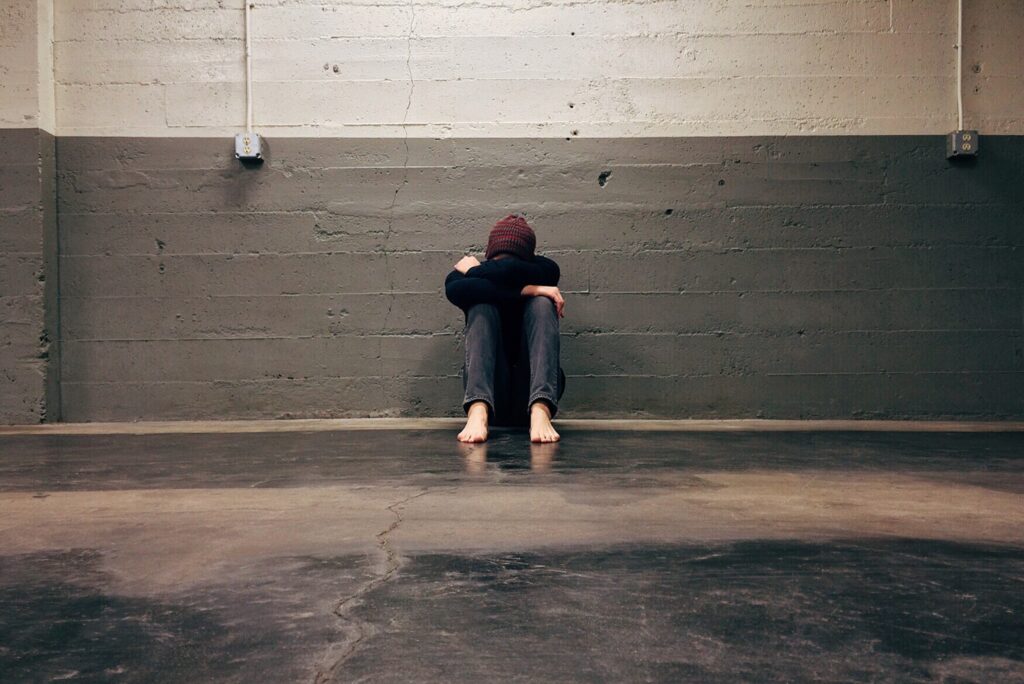Table of Contents
Why Do Anxiety Disorders Occur?
Anxiety disorders have uncertain specific aetiology. A combination of hereditary and environmental variables may be involved, according to the National Institute of Mental Health (NIMH). Additionally, being investigated as a potential cause is brain chemistry. Your brain’s regions that regulate your fear response may be at play. Read the article to learn what causes anxiety.
Along with other mental health issues including substance misuse and depression, anxiety disorders frequently coexist. Many people use alcohol or other medications to try to reduce the effects of their anxiety. These medications only offer transient relief. Drugs like caffeine, nicotine, and alcohol can exacerbate an anxiety disorder.

Causes Of Anxiety
Before going through the cause of anxiety, it’s necessary to understand the signs that you are an anxious person. The following are some factors that could make you more likely to acquire an anxiety condition. These will help you answer the question what causes anxiety:
Stress
Although stress is something that everyone experiences, severe or unresolved stress might raise your risk of developing chronic anxiety.
In 2019, the authors of a study review looked at several studies’ findings that stress and anxiety have neurological connections. They came to the conclusion that neuronal characteristics in particular regions of the brain, such as the amygdala, which is involved in processing threatening and frightened inputs, may aid in explaining how stress causes anxiety.
Genetic Influences
You may be more likely to get an anxiety condition if someone in your family already has one. Although social and economic circumstances can have an impact, mounting research points to the possibility that hereditary characteristics may as well.
A 2019 study examined the connections between genetic traits and diseases linked to stress and anxiety. The authors came to the conclusion that having particular genetic traits may make you more prone to worry. These characteristics might be inherited.
Type Of Personality
Your likelihood of experiencing anxiety and anxiety disorders may be influenced by specific personality features.
Researchers studied 489 first-year university students over the course of 6 years to determine how certain outlooks, such as a propensity for negative emotions, extraversion, and introversion, would increase the likelihood that they will experience anxiety and depression.
In addition, they discovered that major depressive disorder, agoraphobia, panic disorder, and generalized anxiety disorder (GAD) were more likely to develop over time in people who were hypercritical of themselves, had trouble accepting criticism, or had a lot of negative thoughts and feelings as young adults.
Additionally, those who scored highly on an introversion measure as opposed to an extroversion scale were more likely to suffer from agoraphobia.
Although they might serve as “vulnerability variables,” the authors contend that they are likely a small portion of a much larger picture. You can learn more about type of anxious people in our separate article.
Trauma
Your chance of getting anxiety may increase if you have recently or in the past experienced a stressful incident, such as being abused or taking part in battle. It may also occur if you have observed trauma or are close to someone who is experiencing trauma.
After a surprising or terrifying event, many people develop anxiety; this condition is known as acute distress disorder (ASD). Nevertheless, persistent symptoms can be a sign of post-traumatic stress disorder (PTSD). The majority of the time, symptoms begin within three months after the occurrence, although they can sometimes show up months or years later.
They consist of:
flashbacks, nightmares
trouble feeling on edge all the time avoiding locations or situations that could cause stress symptoms, sleeping, and having outbursts of rage
ASD may occasionally develop into PTSD, but this does not always occur.
Racism
Even after accounting for hereditary characteristics, those who encounter racial discrimination have an increased chance of developing anxiety and anxiety disorders.
According to researchers who published a study in 2021, discrimination increases the likelihood of anxiety. The authors urged further education about the connection between racism, other types of discrimination, and social exclusion and how those factors can impact people’s mental health.
Black individuals and Indigenous People of Color in the United States are at risk of traumatic stress disorder based on race, according to Mental Health America (MHA) (RBTS). If you have had a “emotionally traumatic, sudden, and uncontrollable racist encounter,” RBTS may have an impact on you. The symptoms can have an impact on a larger group and are similar to those of PTSD. MHA notes that RBTS is not a mental illness but rather a mental injury, in contrast to PTSD.
Sex Of The Person
According to studies, women are more likely than men to experience anxiety and experience the onset of an anxiety disorder, however, this may vary somewhat depending on the disorder.
The following rates seem to be higher in females than in males:
panic attack, separation anxiety, agoraphobia, generalized anxiety disorder, and post-traumatic stress disorder (PTSD)
However, social anxiety disorder (SAD) and obsessive-compulsive disorder may affect both men and women equally (OCD). The two anxiety disorders that males are most prone to have are OCD and SAD.
According to the experts, the cause is probably a result of a combination of biological and social or cultural elements, though additional research is still needed to determine how each factor contributes.
Transphobia
Those who have gender dysphoria do not identify with the gender that was given to them at birth.
This can cause confusion and anxiety, but it can also raise your risk of conflict with others, especially if they have inflexible ideas about the roles that men and women should play in society.
Statistics from a Reliable Source indicate that many individuals with gender dysphoria run the risk of:
anxiety disorders and tension
depression
suicide-related ideas or Substance abuse
Medical Causes
A person’s health can influence stress in a number of ways, including:
having a chronic sickness that makes daily living difficult, like palpitations, having a disease that creates incredibly difficult symptoms, such a hormonal imbalance, having a condition where anxiety is a symptom, like a hormonal imbalance
These won’t always result in anxiety disorders.
Events In Life
According to the American Institute of Stress, life events, like trauma, might raise your risk of stress and anxiety.
Examples comprise:
a loved one dies, gets divorced, or separates
time spent in the criminal justice system, injuries, or illnesses, financial strains or a loss of work, and significant life events like buying a new home or getting married.
Even while some people might, a person can go through these things without ever acquiring an anxiety disorder.
Medications
Some medications have the potential to produce symptoms of anxiety as a side effect.
Examples comprise:
some medications for asthma, such as fluticasone-salmeterol (Advair Diskus), which can cause tremors; drugs containing caffeine, such as Excedrin Migraine, which can cause irritability; drugs to treat ADHD, such as Ritalin; corticosteroids, such as dexamethasone; and phenytoin (Dilantin), an anti-seizure drug; and Rytary, a drug for Parkinson’
What causes anxiety attacks?
What causes anxiety attacks? Individuals experience anxiety at vastly different times. The triggers for various anxiety disorders will also vary. Some individuals may experience anxiety as a result of the following:
health problems
the consumption of certain substances, such as alcohol or coffee; lifestyle choices; financial concerns; or being alone or around a lot of people.
Conflicts that bring back bad memories
Risk Elements
The degree of anxiety symptoms can be impacted by a variety of circumstances. According to the NIMHTrusted Source, some risk factors may be particular to an anxiety disorder, but overall they can include the following:
psychological traits like shyness as a child or having experienced painful situations in the past
A family history of mental illness makes some physical diseases, including a thyroid condition, more difficult to treat.
Conclusion
The precise causes of anxiety disorders are unknown to experts. The influence of genetics, environment, and individual history is likely.
You can try to manage your anxiety by yourself but if it does not help then make an appointment with your doctor if your anxiety symptoms bother you or do not disappear.
They can assist with the diagnosis and develop a plan of care to treat your symptoms. They might suggest a change in lifestyle, therapy, medicine, or other therapies.
Some medical issues and drugs might cause symptoms that are similar to anxiety. In these situations, your doctor will probably treat the underlying cause of your disease or change your prescription schedule.
Learn more about the human mind, discover yourself and remain motivated with Evolve! If you liked our article, try the Evolve App to help you move on and focus on your growth. Evolve has a range of guided audios that help you proactively manage stress, reduce anxiety and make mindfulness light and joyful, so you can be balanced at any time! The Evolve app is now live globally on Android and Apple. Click here to try it for free!
Co-founder and brains at LeapX by C32 Media Labs
Mail at sarah@c32.media to connect with her.
